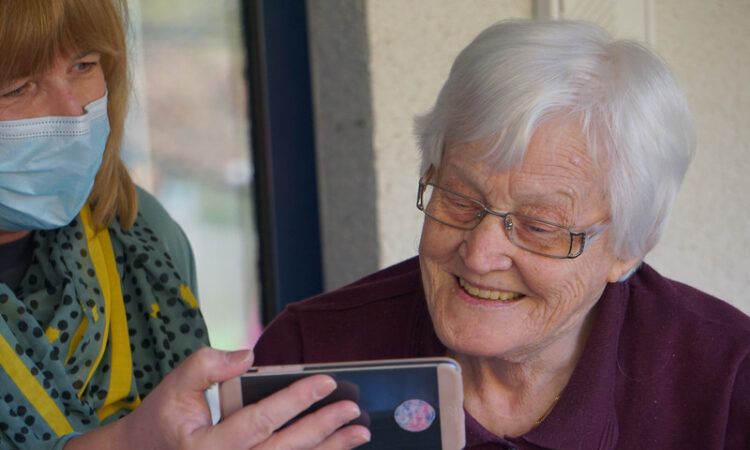
Europeans are ageing, and neither the continent’s infrastructure nor current public investment will be able to meet their growing demand for services — leaving a space for home care and the proliferation of digital platforms.
By 2050, 38.1 million people will need long-term care (LTC) services in the EU. That’s over seven million more than in 2019.
Care is already costly, putting access to these services out of reach for many households. Atypical work arrangements and unpaid work are emerging as alternatives.
Around 80 percent of care in the EU is provided by informal carers: that is, family, neighbours or volunteers. More than nine-out-of-ten carers are women, and migrant women are disproportionately used as undeclared or semi-legal work in this sector.
Despite growing demand, countries such as Slovenia and Spain have barely increased the share of GDP spent on long-term care between 2005 and 2018. The increase measured only 0.1-0.2 percent. This can make it even more difficult for older people to access these services.
In Belgium, day care prices have risen in recent years without an increase in the care budget, and in Spain there are not enough public care places, report Caritas, the Catholic NGO, offices in these countries.
“Without public financial support, the total costs of long-term care would be higher than median incomes among older people in most OECD countries and EU member states,” the Organization for Economic Cooperation and Development notes.
On top of this, the care sector is already facing a shortage of carers across the EU, and the conditions under which they work in the formal sector are not exactly attractive either.
Carers are underpaid, suffer from heavy workloads, split shifts or inadequate social protection, highlights a recent Caritas Europa report on the challenges of long-term care in Europe.
All of this has created the perfect storm for the proliferation of digital platforms that offer a place to search for care services or a full service provider that matches caregivers and care seekers.
Uber-isation of care?
The way it works varies from platform to platform, but it is similar to Uber: a digital platform mediates between the client and the professional, there are ratings and the app can use your location to list all offers.
Care.com, Curafides, Home Care Direct, Pflegix or Supercarers have emerged in various European countries to meet the unmet demand for care.
“The lack of public investment is creating cracks for these profiteers to fill the gap,” Tuscany Bell, policy coordinator for social services and care at European Public Service Unions (EPSU) told EUobserver.
These platforms offer carers what appear to be higher wages, flexibility, and locations close to home — but unions warn of the hidden risks and long-term consequences of these jobs.
“This is creating a social time bomb for millions of women,” Bell said. “We need higher pay and more formality in the sector, not less.”
Behind the immediate higher earnings is the lack of protection in the event of an accident at work, no paid leave and no contributions to the social security system, which could mean no pension in the future.
“Unpaid commuting times to clients’ homes, unpaid hours for searching for tasks online and additional expenses for tools and equipment may also relativize the gains from higher earnings,” reads an extensive analysis made by the European Economic and Social Committee (EESC).
Nor do they provide any form of income security. These platforms typically receive a monthly subscription fee and/or a payment for processing payments between caregivers and care seekers, but they do not guarantee a minimum number of hours worked, a match, or compensation in the event of cancellation of the service.
“They are not the solution to the care crisis but a symptom,” Olivier Roethig, general secretary at UNI Europa, told EUobserver. “The care crisis can only be tackled with quality working conditions, good wages and collective bargaining”.
For UNI Europa, the trade union for service workers, all workers should have the same rights and be paid the same for work of equal value.
“Platforms need to be regulated, whether they promise to match care users and care workers, find volunteers to help in the household or offer tailored care services,” Roethig said.






